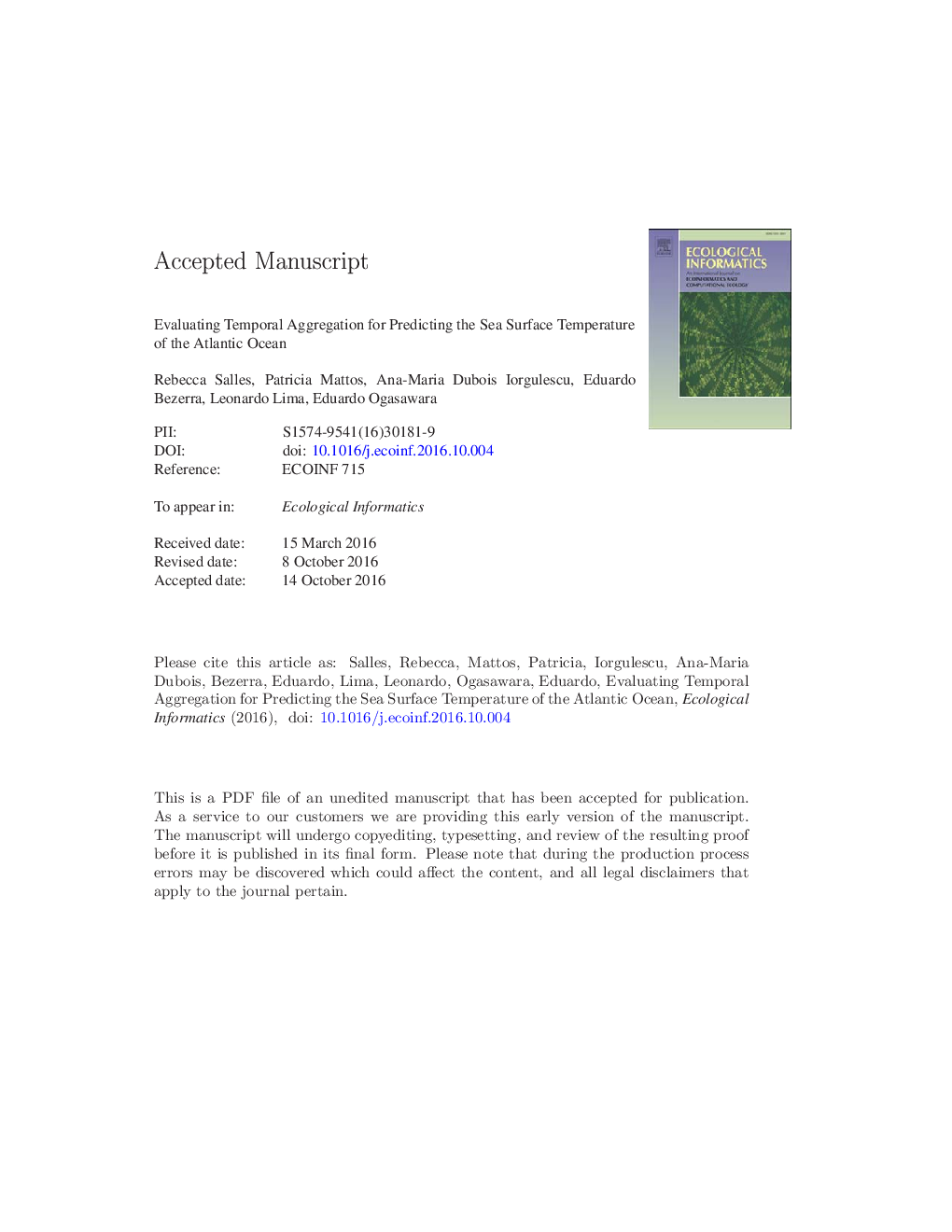| Article ID | Journal | Published Year | Pages | File Type |
|---|---|---|---|---|
| 8845920 | Ecological Informatics | 2016 | 15 Pages |
Abstract
Extreme environmental events such as droughts affect millions of people all around the world. Although it is not possible to prevent this type of event, its prediction under different time horizons enables the mitigation of eventual damages caused by its occurrence. An important variable for identifying occurrences of droughts is the sea surface temperature (SST). In the tropical Atlantic Ocean, SST data are collected and provided by the Prediction and Research Moored Array in the Tropical Atlantic (PIRATA) project, which is an observation network composed of sensor buoys arranged in this region. Sensors of this type, and more generally Internet of Things (IoT) sensors, commonly lead to data losses that influence the quality of datasets collected for adjusting prediction models. In this paper, we explore the influence of temporal aggregation in predicting step-ahead SST considering different prediction horizons and different sizes for training datasets. We have conducted several experiments using data collected by PIRATA project. Our results point out scenarios for training datasets and prediction horizons indicating whether or not temporal aggregated SST time series may be beneficial for prediction.
Keywords
Related Topics
Life Sciences
Agricultural and Biological Sciences
Ecology, Evolution, Behavior and Systematics
Authors
Rebecca Salles, Patricia Mattos, Ana-Maria Dubois Iorgulescu, Eduardo Bezerra, Leonardo Lima, Eduardo Ogasawara,
